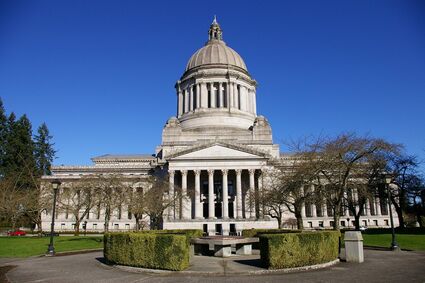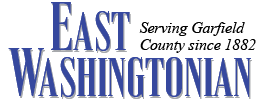Olympia Update
2021-23 capital, operating, and transportation budget proposals
April 22, 2021
OLYMPIA–Both the House and Senate have approved their versions of the state's two-year capital, transportation, and operating budgets. Now, budget writers will go line-by-line to make any final adjustments to these budget proposals. Before the final gavel on April 25, we will be given one more opportunity to weigh-in and vote on the finalized budgets before they head to the governor's desk for signature.
Two of the three main budget proposals passed both chambers with bipartisan support, including mine. These budgets were the 2021-23 capital and transportation budgets.
The $5.7 billion capital budget is known as the construction or "brick and mortar" budget. It allocates funds for mental health expansion efforts, schools, low-income housing, state park improvements, land acquisitions, broadband, construction and repair of public buildings, and other long-term investments.
I am happy to announce roughly $30 million in local projects for the 16th District are appropriated in the proposed capital budget.
The bipartisan $10.9 billion biennial transportation budget is both an operating and capital budget for our state's transportation system. It funds infrastructure projects across the state including maintenance and preservation of current transportation systems, the Washington State Ferry system, the Washington State Department of Transportation, the Washington State Patrol, and other state transportation agencies.
The 2021-23 transportation budget will keep transportation projects across our district and state moving forward. Notably, this proposal also does not include any new taxes.
Even though the transportation budget proposal did not include any new taxes, there is one tax package that is swiftly moving through the legislative process in the final weeks.
Senate Democrats introduced the "Forward Washington" plan. Their plan includes 33 new tax and fee increases, including a 9.8 cent increase in the state's gas tax.
There is also cap-and-tax legislation moving through the legislative process that seeks to raise transportation-related taxes.
I will continue to work in a bipartisan manner with my colleagues in both chambers to find real solutions for our state's transportation needs, but at this time I cannot support any tax increases.
The $58 billion two-year operating budget did not garner bipartisan support.
This budget funds the day-to-day operations of the state, and includes priorities such as investments in childcare, rental and landlord assistance, the expansion of broadband, and improvements to state-managed forestlands. Those are all good policy objectives.
Even though this budget has some good policy objectives, I do have three major concerns: the unsustainability of the spending plan in future years, the maneuver to transfer funds from the budget stabilization account (rainy-day fund), and its dependence on an income tax on capital gains. For these reasons, I did not support the operating budget.
It is troubling that state spending continues to climb so dramatically. The House proposal increases the operating budget by $6.6 billion, an increase of more than 12.8% over the current budget cycle. The enormity of the $58 billion plan, and its focus on expanding ongoing operations and programs instead of one-time expenses, means it likely will create a bow wave of obligations in the future.
Despite early predictions of a budget shortfall, state government has made it through the pandemic relatively unscathed, primarily due to expansive federal support. Budget writers have more than $4.3 billion in surplus state revenue to work with this year. Not only have tax collections rebounded to pre-COVID levels, they have grown by 13.6%.
It is disappointing that we would be proposing an unconstitutional, unpopular, and unsustainable income tax on capital gains as part of this budget. I also fear this will be the "foot in the door" to expanding an income tax to middle-class and working families.
House Republicans offered an amendment that would have funded this entire budget proposal without relying on this tax; however, the amendment was rejected.
The operating budget also shields rainy-day funds from the constitutional 60% supermajority by transferring it into another account. While legal, since the constitution allows for a simple majority vote when employment growth is under 1%, this move clearly violates the spirit of law as approved by voters. The funds were transferred out now to avoid the need for minority party in the future.
State revenue has increased over 13% since the last biennium. Current law directs budget writers to adjust future revenue assumptions by 4.5% based on historical revenue collections. Since incorporating this 4.5% adjustment, actual revenues have exceeded that forecast by $1 billion to $7 billion each biennium.
Using the 4.5% statutory assumption, the ending fund balance would be $1.5 billion, plus rainy-day funds of $1.8 billion, leaving a balance of $3.3 billion after funding all of the adopted spending in the budget.
While I commend setting aside revenue, creating an artificially low ending fund balance while adopting a new capital gains tax frames a disingenuous conversation about the need for new revenue. The argument for new taxes doesn't pencil out, especially this year.
The Legislature should use one-time excess revenues for one-time expenses, such as buying down COVID-related unemployment insurance increases in full, buying down underfunded pension liabilities, funding public works board revolving loan programs and other one-time spending.
-Rep. Rude represents the 16th Legislative District, including the cities of Pasco and Walla Walla.









